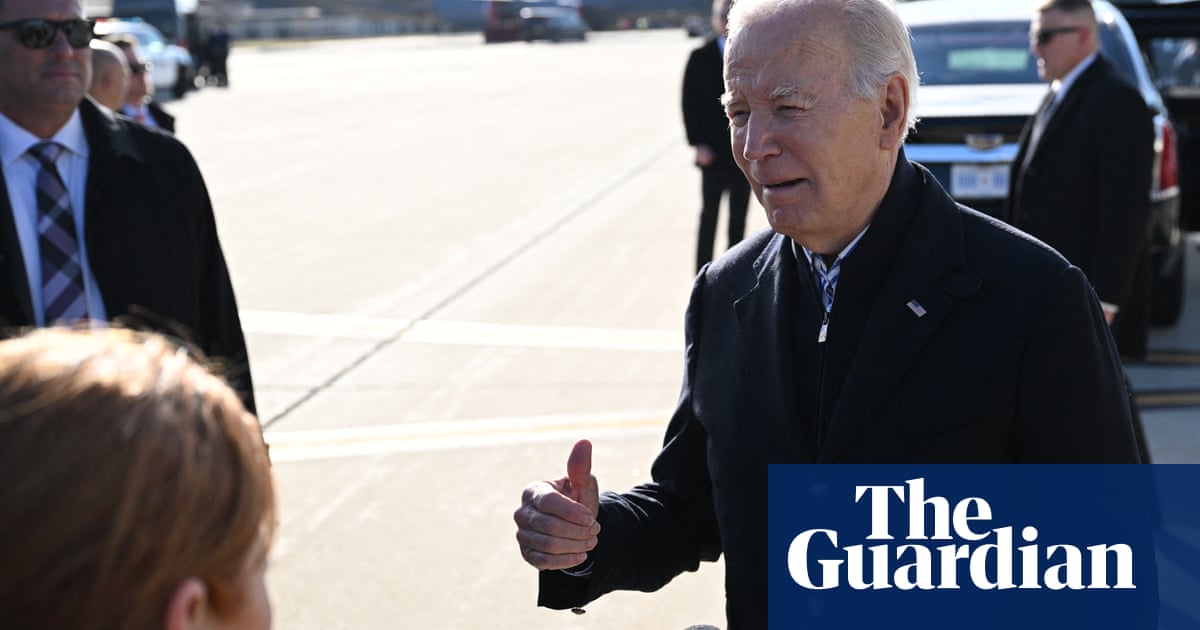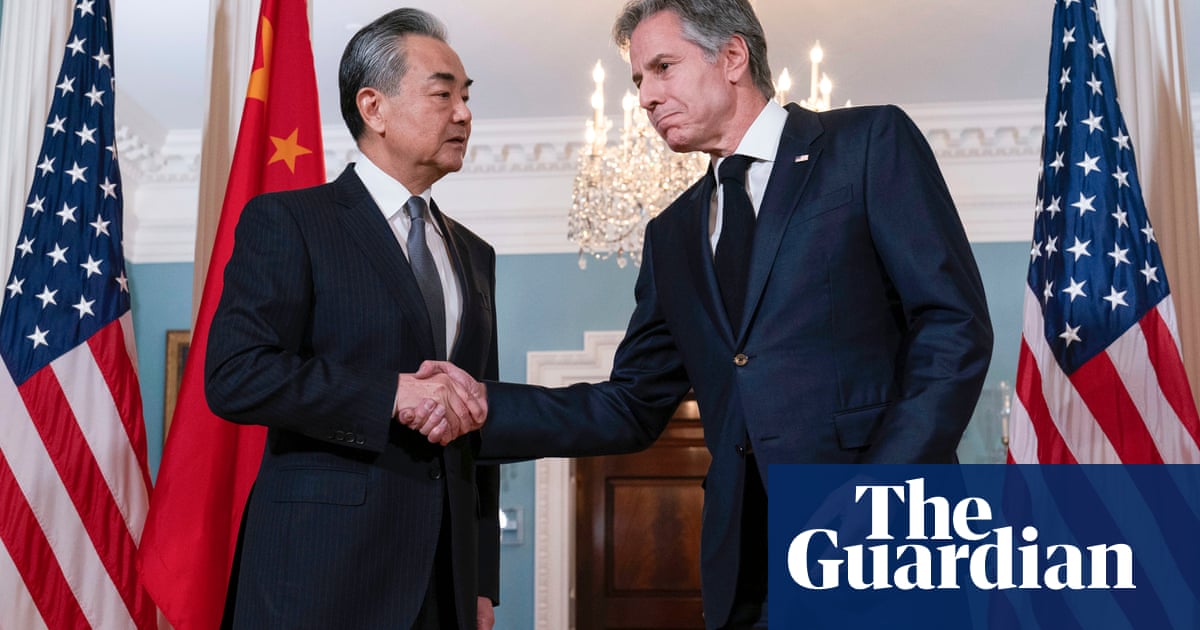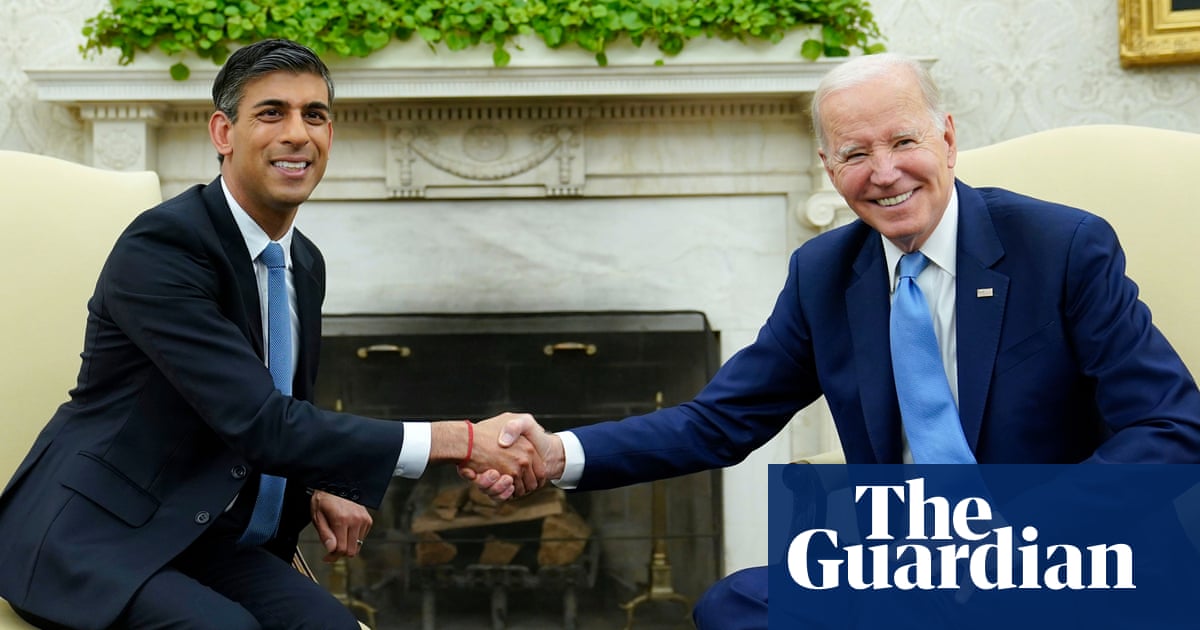
Joe Biden and the Australian prime minister, Scott Morrison, have welcomed their new security ties after last week’s announcement that Washington would provide Canberra with advanced technology for nuclear-powered submarines as part of trilateral deal with the UK.
“The United States has no closer or more reliable ally than Australia,” Biden said on Tuesday ahead of a bilateral meeting with Morrison on the sidelines of the United Nations general assembly in New York.
In his speech to the general assembly earlier, Biden made no direct reference to the controversial new security pact, under which the US agreed to share nuclear propulsion technology for submarines in a move that is designed to contain China.
The deal has infuriated Paris, and Biden has yet to be able to arrange a call with the seething French president, Emmanuel Macron.
Morrison, meanwhile, has been accused of going behind the backs of the French to cancel a contract with Paris to supply 12 submarines, and replacing it with a deal for nuclear-powered submarines with the US and UK.
On Tuesday, Morrison came under a ferocious attack by the former Australian prime minister Kevin Rudd, who, writing in the Le Monde, said the prime minister had behaved in a cavalier manner that would play into the hands of China propagandists.
Rudd accused Morrison of not following “basic diplomatic protocol by failing to inform the French government of his decision”.
“Such a failure is not acceptable between adversaries, it is even less so between allies. Besides, Morrison failed to understand the wider implications of his decision for foreign policy, and this is perhaps the most appalling of the whole story,” he said.
The attack came as Macron made his first moves in response to the snub, speaking on Tuesday with the Indian prime minister, Narendra Modi, in what appeared to be an effort to shore up a rival Indian-French alliance in the Indo-Pacific – and secure a pending profitable nuclear deal.
The two leaders had vowed to “act jointly” in the Indo-Pacific region, the French presidency said.
Macron was said to have assured Modi of continued “commitment to the strengthening of India’s strategic autonomy, including its industry and technology base, as part of a close relationship based on trust and mutual respect”. France has been bidding for a $7bn contract to build six nuclear-powered submarines with India.
Macron’s office said that the shared approach of the two countries within the framework of the Euro-Indian relationship “aims to promote regional stability and the rule of law, while ruling out any form of hegemony”.
The phone call looked like a potential French effort to shore up its bid for SSN submarines and even assemble a separate alliance to the Aukus security pact announced last week.
Naval Group, the French business cut out of the Australian deal, has already been working with India’s state-owned Mazagon Dock Shipbuilders to deliver six Kalvari submarines that are valued at a combined 230 billion rupees ($3.13bn). Two of these have already been launched, two are undergoing sea trials and two are under construction.
The projects include technology transfers from the French company to its Indian partners.
The French defence minister, Florence Parly, and her Indian counterpart, Rajnath Singh, held discussions about a Naval Group bid for tenders launched in June by the Indian navy for Project-76 indigenous SSNs fitted with a new nuclear reactor. The US has so far refused to share the technology with India, although it now has agreed to do so with Australia.
Delhi wants the submarines because it is worried about the rise of China, whose military ships are increasing joint exercises with the Pakistani navy in the Indian Ocean.
In 2017, the Indian navy chief, Adm Sunil Lanba, visited a French shipyard for a closer look at its newest Barracuda-class SSNs. However, it has also sent out feelers to the US for nuclear reactor propulsion technology for submarines and surface ships.
Macron’s call with Modi came as French opposition politicians criticised him for missing the scale of the threat to the Australian contract.
Modi is preparing to travel to the US to meet Biden for their first in-person bilateral summit on Thursday. Modi is also expected to have bilateral conversations with Morrison and the Japanese premier, Yoshihide Suga. On Friday, the four leaders will sit down at the White House for the first summit of the Quadrilateral Forum, or the Quad. The four leaders met digitally in March this year.
India has expressed concern that the Aukus partnership could mean a downgrading for the Quad.












